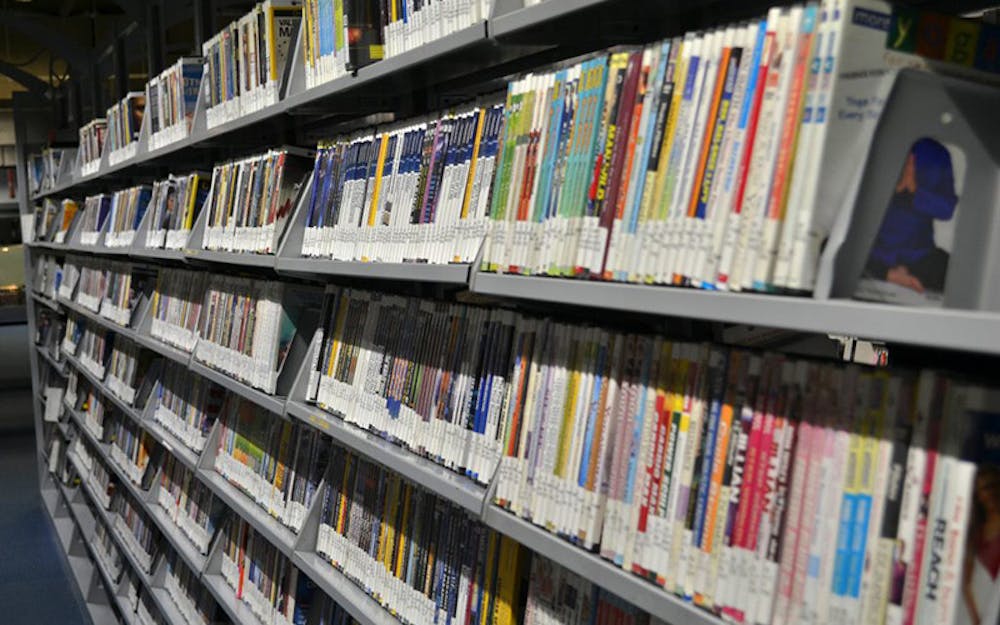Schools are developing websites to receive book orders in order to enforce the law from House Bill 2439.
House Bill 2439, passed on April 29, 2022, allows parents to access their childrens’ school’s library collection and a list of books and materials their child borrows. The law goes into effect on January 1, 2023.
Tracy Harvester, the Executive Director of Teaching and Learning for Tempe Elementary School District #3, said the board is in the process of developing procedures that will directly link received book orders to their website.
“In the same manner, we are thinking of ordering books on a quarterly basis instead of just as necessary in an effort to streamline the process,” Harvester said. “It’s less confusing for parents.”
The school board is still developing procedures and plans on having a second meeting to describe the law.
House Representative Beverly Pingerelli is an elected school board member and was the primary sponsor of the bill. She said the legislation helped the community understand the types of new books being added to school libraries.
“Since I represent the Peoria and Glendale community, and overall parents overwhelmingly wish to be involved in their children's education, I feel a strong sense of accomplishment to have represented the majority of my constituents,” Pingerelli said.
The bill will require school districts to publicly post new books that are added to their library. Under the new bill, parents will be able to request the list of books their children are checking out.
Pingerelli said the bill provides additional transparency for the type of learning resources available to the students and community.
“I believe most parents wish to be involved and know what their minor children are reading, so I do not see adverse effects of this legislation,” Pingerelli said.
House Representative John Fillmore said it is up to school boards to determine how the school implements the law and the exact procedures they use.
Fillmore said if a teacher does not want to comply with the laws of the school board, then they should be terminated without question.
“Let's suppose you are on a school board, you have certain standards,” Fillmore said.
Fillmore said the law will be irrelevant to librarians' jobs because it was already their job to take care of books, ensuring their placement and proper assignment.
“I think she should welcome or he should welcome the input from parents as to what they want,” Fillmore said.
House Representative Neal Carter said he thinks the law directs school boards to ensure there is a procedure for parents to access library catalogs.
Carter said librarians already maintain catalogs so there is no additional work for them – rather, the additional work is for the school board because it needs to outline a procedure for parents to access the catalogs.
Carter also said if a school board doesn't come up with a procedure, he doesn't think there is a punishment written into the law because catalogs have already existed. The law is about the parents having access.
“So that may mean that parents are allowed to visit the media center, or it may mean the catalog is put online,” Carter said. “I think either case isn't a big deal because most catalogs are online.”
Carter said it comes down to the basic philosophy of who has control of children and who has the right to direct their activities. He said he thinks parents should be able to know what materials are being taught to their children. Carter doesn't think the law will encourage censorship.
“Of course it does not encourage censorship, it simply makes the catalog public,” Carter commented. “It doesn't say anything about a prohibition.”
Arizona State University professor Dave Wells said the law will affect librarians because the governing board has to approve books in the library which is a form of micromanaging, which is not usually how schools are operated.
He also said that librarians are professionals and use their judgments to help students expand their minds and explore ideas even if they are controversial.
Wells added that in some conservative communities, students will not be able to access more controversial books. He also said there isn't only one way to read a book, but it will deny some students access to books.
“Librarians are really good at helping a good library and it'll be good at helping to encourage students to find out what their interests are, and then encourage them to explore things or suggest books that they might want to think about,” Wells said. “To agree that those books are no longer present in the library is going to limit the ability and again, this might be especially challenging for students who are exploring gender identity issues.”

